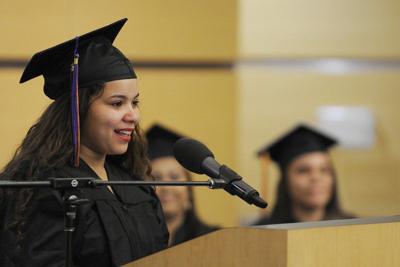LAWRENCE — Six weeks before voters decide whether to allow 12 new or expanded charter schools to open in Massachusetts every year, a Boston think-tank is giving high grades to the charter school organization that has operated a program for high-risk students in Lawrence since the state took over the city's schools in 2011.
Pioneer Institute for Public Policy Research, a Boston-based right-leaning non-profit that promotes limited government, commended Phoenix Academy for its successes getting troubled students – including those who have dropped-out of traditional schools, had babies or are members of gangs – through high school and into colleges.
Phoenix Academy operates independent charter schools in Chelsea and Springfield, and operates a program as a consultant in Lawrence.
In assessing Phoenix Academy's success, the Pioneer Institute report was more anecdotal than data-driven, even noting that Phoenix faculty and administrators "held the children of Phoenix students on their laps" during school events.
Among the handful of statistics the report offered, it said Phoenix Academy graduated 61 students between 2008 and 2011, and that in all but one of those years, all of its graduates were accepted to a post-secondary institution. The report does not have data for the years since 2011, when Phoenix Academy arrived in Lawrence, and did not offer data such as rates for graduation and college admissions for Lawrence's Phoenix Academy students. Those statistics were not immediately available from Lawrence schools Tuesday.
The Pioneer Institute cited several factors in Phoenix Academy's success, including its small class sizes, individualized programs for students and rigorous curriculum, including the Advanced Placement courses it offers students.
“By providing students with opportunities more commonly found in high-performing schools, including those in wealthy, suburban communities, Phoenix is reframing societal ideas of what disconnected you can accomplish,” the report said.
The report also credits Phoenix for working with the public schools where it operates, rather than in competition with them, a cooperative relationship that it credits to the Phoenix mission: taking the most troubled students out of traditional public schools, where they are not succeeding.
The report was written by Cara Candal, an adjunct professor at Boston University's School of Education and a senior fellow at Pioneer Institute. It does not specifically mention Question 2, the Nov. 8 ballot initiative that would ease the cap on the number of charter schools, but recommends “increasing the current cap on charter schools.”





















Commented
Sorry, there are no recent results for popular commented articles.